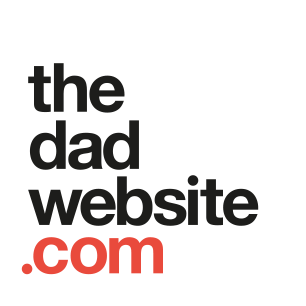The Evil Internet
As we all know, the internet has its good and bad points. It’s long been a great reference tool, and I, as a writer, would be lost without it. The professionals and influential people of previous generations – from journalists to lawyers to stay-at-home parents – had it hard; what with having to physically visit the library, or, worse, risk injury when reaching for that dusty, cobwebbed, outdated encyclopedia for the kind of information nuggets now obtainable with the click of a button.
Thank the Lord for Google.
But there’s a whole lot of trash out there in cyberspace – particularly in forums. Especially in those which focus on topics of a universal nature. Like pregnancy.
It became evident early on in my partner’s pregnancy that I needed to take the time to familiarise myself with as many of the myriad pregnancy sites as I could, and then contact our IT guy to get them blocked. I couldn’t believe what I was reading as I sifted through some examples.
While generally well-meaning, much of the content, from overly zealous mothers of varied experience, was ill-informed, overbearing and confusing. Most of the comment-threads centered on eating and drinking – or, specifically, what to consume more or less of, and when – while other divisive issues included exercise, swimming, sex, painting, renovating, cleaning, bathing and even driving. And that’s just skimming the surface.
Some worry-happy bloggers, it seems, get so wound up that they all but label Dan Murphy’s the Antichrist – even forbidding their partners to drink in front of them – or at all.
My hubby gave up drinking for the nine months… what a sweetie!
Our doctor wouldn’t offer a definitive answer on those things lumped in the ‘sure-fire avoidances’ column, such as alcohol, coffee, soft cheese and processed meat. All she’d say is that, taken in moderation, none were necessarily harmful. But there are, of course, no medical guidelines to state that any quantity of anything – especially anything alcoholic – is safe. “So, best to just avoid them,” she said.
So my partner did. She avoided putting her nose anywhere near freshly opened tins of paint; nor did she hang around any chemical factories, taking great gulps of toxic air. As for bedroom action, we continued to enjoy it (even more so at times, so erratic were her hormones) but were mindful, particularly as she became bigger and more hindered, not to be too frivolous.
The argument that ‘we now know more than our parents did’ doesn’t cut it.
She, however, trusted her instincts when it came to enjoying some of the creature comforts that some other pregnant women avoided like the plague. After three months she returned to coffee, even if it was only a couple of lattes per week instead of two each day. She reacquainted herself with my salami and tomato pasta. I cooked the hell out of every bit of meat I prepared for her dinner.
The argument put forward by some mothers that “we now know more than our parents did” doesn’t, as far as I’m concerned, cut it. That old chestnut – ‘less is more’ – rings true here. Just because there’s more information doesn’t mean we have to listen to – or read – it all. The process of conceiving and giving birth is the same as it’s always been, whether in disease-plagued Africa, where millions have survived, or in our parents’ or grandparents’ generation, when smoking during pregnancy was rife. Heck, my mother just cut back on the darts and downgraded to light beer when pregnant with me. Her mother probably did neither and has four healthy adults now in their fifties and sixties.
So while forum-frequenters, including ‘anxious29’ and ‘OMGhelp!’, drive themselves batty worrying about whether “the acidity of pineapple juice can harm the ovarian process” (here’s a hint: don’t eat pineapples or drink pineapple juice), my partner made the most of her slightly adjusted lifestyle – and the first bloom of pregnant life.
Check out this handy infographic from Positive Health Wellness for six must-eat foods during pregnancy.

